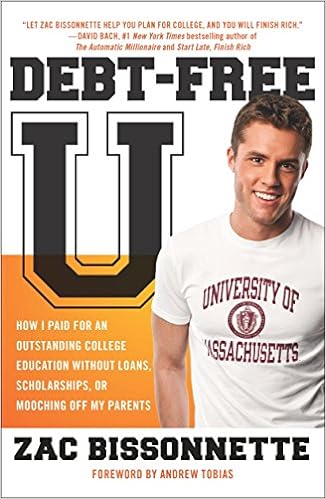yeahdisney
DIS Veteran
- Joined
- Aug 21, 2004
Runwad. I made HUGE mistake.
I read kid's book DD prob freshman year high school.
I typed it out twice but the disboard reloads as I post reply.
The gist, I did not put ER money into IRA for spouse I chose to keep it in plain brokage account. I was looking at the future with both spouses working, DH was offered very early retirement from job number one and took it. He was funded at work for retirement not thru an IRA.
This September the college DS was accepted to last Friday announced in September if you had less than .... In savings a FULL RIDE.
I expect them to ask for finical records I could of pulled a lot cash out prior to FAFSA Oct 1 but it was not worth the possibility of penalties to me or student. And what I could put into one year IRA would not cut it, but I could of maybe made it if I started moving that money 6 years ago.
DD is in same college, 50 females accepted for male predominate field. She received no school aid her freshman. She basically had same profile as DS but her junior year she spearheaded earning $50000 for the school greenhouse as FFA president.
DS has high ACT, good grades, activities, leadership role, and volunteered since middle school. I except no aid. He could of have a full ride, I could of turned in the state funds to pay for room and board.
We started the day the kids were born our states college plan, we used $20 bday gifts, we both put a set amount in each paycheck, we still do. We used any tax refunds, the 26th paycheck of the year, we had them funded before they hit kindergarden because it was cheaper. Heck our tax account did not think it was a good idea, I was how only client doing it, he has changed his tune. We are still working on room and board for the kids.
I read kid's book DD prob freshman year high school.
I typed it out twice but the disboard reloads as I post reply.
The gist, I did not put ER money into IRA for spouse I chose to keep it in plain brokage account. I was looking at the future with both spouses working, DH was offered very early retirement from job number one and took it. He was funded at work for retirement not thru an IRA.
This September the college DS was accepted to last Friday announced in September if you had less than .... In savings a FULL RIDE.
I expect them to ask for finical records I could of pulled a lot cash out prior to FAFSA Oct 1 but it was not worth the possibility of penalties to me or student. And what I could put into one year IRA would not cut it, but I could of maybe made it if I started moving that money 6 years ago.
DD is in same college, 50 females accepted for male predominate field. She received no school aid her freshman. She basically had same profile as DS but her junior year she spearheaded earning $50000 for the school greenhouse as FFA president.
DS has high ACT, good grades, activities, leadership role, and volunteered since middle school. I except no aid. He could of have a full ride, I could of turned in the state funds to pay for room and board.
We started the day the kids were born our states college plan, we used $20 bday gifts, we both put a set amount in each paycheck, we still do. We used any tax refunds, the 26th paycheck of the year, we had them funded before they hit kindergarden because it was cheaper. Heck our tax account did not think it was a good idea, I was how only client doing it, he has changed his tune. We are still working on room and board for the kids.
Last edited:
